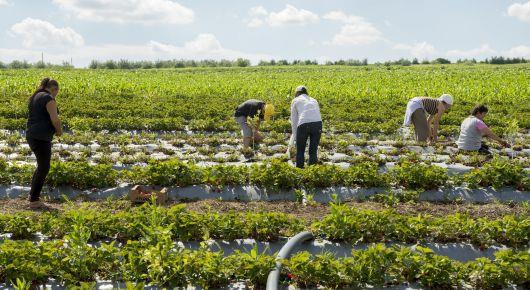Moldovan agriculture set to become more resilient against climate change

Agriculture in the Republic of Moldova is set to become more resilient to climate change vulnerabilities thanks to a new USD 0.685 million project.
The agriculture sector is a mainstay of the country’s economy with the majority of the population living in rural areas and depending on agriculture for food and income. Since about 90 percent of crop production is rainfed, the survival of farmers strongly depends on their resilience to the weather.
Today, FAO launched a new project on mainstreaming climate change adaptation into the country’s national planning processes for reduced vulnerability to climate change at local and central levels. The activity, implemented in partnership with the Ministry of Agriculture, Regional Development and Environment and financially supported by the Green Climate Fund (GCF), complements a broader effort of the country to achieve the Sustainable Development Goals and the Paris Agreement.
Since half of the agricultural workforce consists of women, the project will particularly develop a gender-sensitive agricultural impact analysis to provide sector specific data and evidence for decision-making processes and thus strengthen governance.
“Agriculture in the Republic of Moldova, being the largest sector of the country’s economy, needs additional support to better adapt to climate change impacts,” said Raimund Jehle, FAO Representative in the Republic of Moldova. “Thus, an action plan on climate change adaptation in the sector will prioritize and accelerate these initiatives.”
The three-year FAO project will integrate climate change adaptation responses into the planning processes of the agriculture sector by facilitating the local actions of six selected districts from the country’s southern, central, and northern regions for improved planning and budgeting of climate change adaptation measures.
“The Ministry is very interested in working closely with FAO in the implementation of the project to identify innovative adaptation solutions and create new opportunities for young farmers and female entrepreneurs in applying climate smart agriculture,” said Ion Perju, Minister of Agriculture, Regional Development and Environment.
The work has officially begun with a virtual workshop gathering representatives of FAO, the Ministry, UN Resident Coordinator Office, development partners, agriculture and climate-related research institutions and academia, non-governmental sector and farmer associations.
24 March 2021, Chisinau, Republic of Moldova
